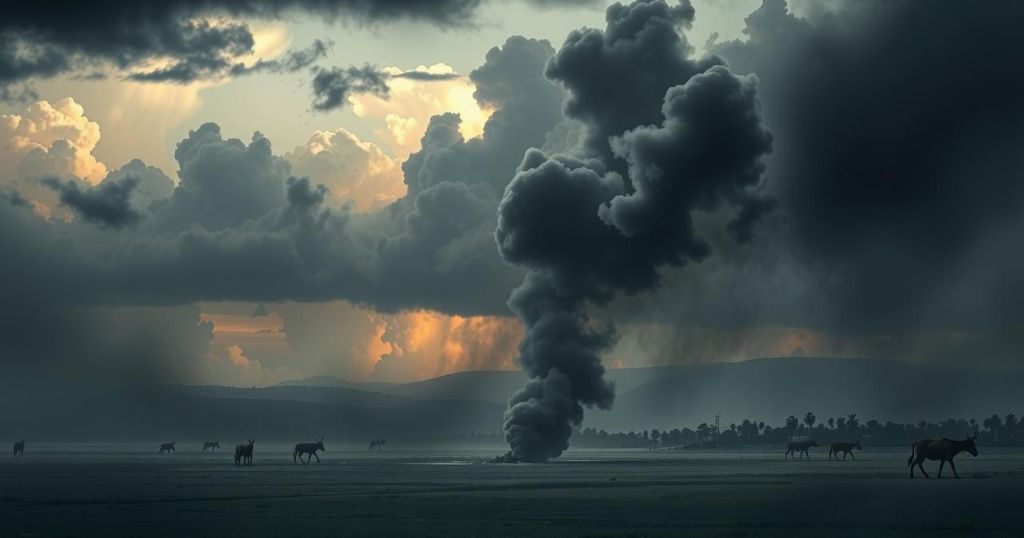A war in Sudan has escalated since April 2023 due to power struggles within the army influenced by Islamist factions. Significant violations against civilians have been reported amid international inaction. Regional powers such as Iran and Turkey have further complicated the conflict, which is now recognized as a genocide. The international community faces the urgent task of implementing mechanisms for civilian protection and accountability.
In April 2023, a significant war erupted in Sudan between the Armed Forces and the Rapid Support Forces, rooted in a power struggle exacerbated by Islamist influences within the military. The commander, Abdel Fattah al-Burhan, has resisted transferring power to civilian leadership, leading to a bloody conflict. Regional powers have also intervened, with Turkey supporting Islamist militias and Iran supplying advanced weaponry to the army, thus exacerbating the humanitarian crisis.
The current war is marked by severe human rights violations, including summary executions, systematic sexual violence, and widespread ethnic cleansing. International organizations like Human Rights Watch and Amnesty International have reported alarming violations in locations like Al-Jazeera and Wad Madani, following the army’s control. Despite these crimes, the international response remains tepid, characterized by diplomatic condemnations but lacking decisive action.
The Sudanese army’s recent military advances can be attributed to their alliance with extremist militias, enhanced capabilities due to Iranian support, and brutal warfare tactics resembling those in Syria. The power dynamics have shifted significantly, leading to increased civilian casualties and destruction.
Both Iran and Turkey appear to have vested interests in Sudan, albeit with different strategies. Iran aims to boost its military influence in the Red Sea by supporting the Sudanese army, while Turkey’s backing of Islamist factions indicates a strategic competition in the region. This geopolitical rivalry compromises the wellbeing of the Sudanese populace.
The leaders of the Sudanese army have outright rejected peace initiatives, including the Geneva conference, signaling a clear intention to maintain and prolong the conflict. This resistance raises concerns regarding regional and international interests in the ongoing turmoil.
Meanwhile, civilian forces in Sudan find themselves in a precarious position, caught between rejecting both sides who perpetrate violence while being marginalized from political discourse. Their exclusion highlights the urgency of support from the international community to empower these civilians in overcoming the crisis.
What transpires daily in Sudan cannot be dismissed as mere warfare; it is a documented genocide employing rape and ethnic cleansing to instill fear, particularly in areas like Wad Madani and Al-Jazeera, where acts of barbarity are often recorded by the perpetrators themselves. The absence of adequate international response to these atrocities remains a concerning reality.
To address this dire situation, the international community must implement strict sanctions against military leaders and militias engaging in war crimes, institute a complete cessation of aerial bombardments, and establish an independent mechanism for documenting crimes. Furthermore, it is critical to provide direct support to protect vulnerable populations, especially women and children subjected to sexual violence. This ongoing crisis demands immediate global attention and action, far beyond mere condemnation or passive observation.
The conflict in Sudan exemplifies a catastrophic humanitarian crisis fueled by power struggles, domestic violence, and international complicity. As military forces continue to ignore peace efforts, the plight of civilians worsens under the weight of continued violence and oppression. It is incumbent upon the international community to act decisively to curb these violations of human rights, support civilian forces, and hold perpetrators accountable for their crimes against humanity.
Original Source: www.atalayar.com






